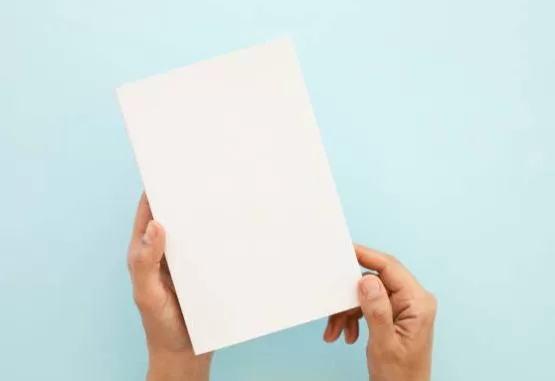How Can I Use Journaling To Track My Self-Improvement Progress??
Learn how journaling can be used to help track self-improvement progress.

Selfpause Affirmation App
Download the app to get 1,000’s of affirmation meditations and everything you need to write, record and listen to your own.
Self-improvement is a journey, and like with any journey, it is essential to monitor your progress to ensure you are on the right road. Journaling is an effective method for documenting your self-improvement efforts, since it provides a record of your successes, failures, and lessons learnt along the way. This article will cover how journaling can be used to track your self-improvement efforts and help you reach your goals.
What exactly is journaling?

The act of recording one’s thoughts, emotions, and experiences in a notebook or journal called journaling. Journaling has been used for centuries as a form of self-reflection and personal growth. It allows you to openly express yourself, without criticism, and get insight into your ideas and emotions.
Journaling can take various forms, from a daily diary to a gratitude journal, to a bullet journal, which is a more systematic method to organizing your thoughts and duties. The most important aspect of keeping a journal is to make it a regular practice.
Why is journaling important for self-improvement?
Journaling is a valuable technique for self-improvement for various reasons:
It facilitates mental and emotional self-awareness: By recording your thoughts and emotions, you might develop a greater understanding of yourself and your responses to various situations.
It serves as a log of your progress: By recording your progress over time, you may see how far you have come and celebrate your triumphs.
By reflecting on your journal entries, you can find patterns in your behavior and cognitive processes, enabling you to make good adjustments.
By setting down your goals and monitoring your progress towards them, you can remain motivated and focused on reaching your objectives.
How to begin journaling for personal development

Beginning a journaling habit may initially appear intimidating, but it is actually fairly simple. Here are some suggestions to get you started:
Pick a diary: You may use any notebook or journal you prefer, but it is vital to select one that inspires you and makes you feel comfortable.
Set aside daily time for: Pick a time each day to write in your journal, such as in the morning, during lunch, or before bed.
Do not worry about grammatical or spelling errors; simply write whatever comes to mind.
Concentrate on the positive: While it is necessary to reflect on difficult experiences and feelings, it is also important to pay attention to the positive areas of your life and the progress you are making toward your goals.
Be consistent: Make journaling a daily practice, even if only for a few minutes per day.
How to utilize journaling to measure your self-improvement journey

It is time to use your journal to track your self-improvement progress now that you have begun journaling. Here are some suggestions to get you started:
Prior to tracking your progress, it is vital to establish goals for yourself. Write down what you want to achieve and how you plan to get there.
Monitor your progress: Record daily your progress toward your objectives, the obstacles you met, and the lessons you gleaned from the experience.
Take the time to reflect on your experiences by reviewing your diary entries and searching for patterns in your behavior and cognitive processes. What are your advantages and disadvantages? What are your negative emotion and behavior triggers? What tactics have you found to be successful in the past?
Appreciate your accomplishments: As you reach a milestone or make progress toward your objectives, take time to recognize your success. Record how you felt and use that positive energy to fuel your continued quest of self-improvement.
Setbacks and failures are an inevitable part of any journey toward self-improvement. Take the time to consider what went wrong and what you can learn from the experience when you encounter a setback. Note any insights or lessons learnt that can be applied to future improvement.
Occasionally, it can be useful to utilize prompts to guide your journaling. For instance, you can ask yourself, “What am I thankful for today?” or “What have I learned from today’s difficulties?”
Examine your progress frequently: Make aside time weekly or monthly to assess your progress and consider what you have learned. Identify patterns, appreciate your triumphs, and pinpoint areas where you may still make progress.
Instances of tracking self-improvement progress through journaling

Here are some examples of how you can measure your self-improvement efforts through journaling:
If your objective is to enhance your health and fitness, you can use your journal to record your workouts, food, and progress toward your fitness objectives. Record how you feel after each session, any obstacles you encountered, and any insights you’ve gained about your fitness journey.
If your objective is to enhance your personal development, you might use your journal to reflect on your experiences, emotions, and relationships. Record what you’ve learned from each encounter, how you’re working to improve yourself, and any insights you’ve gained about your journey of personal development.
If your objective is to advance your career development, you can use your journal to monitor your progress toward your professional objectives. Document your career growth triumphs and milestones, any obstacles you encountered, and any insights you received.
If your objective is to better your creative activities, you can use your journal to monitor your progress toward your artistic objectives. Record any new ideas you have, any projects you’re working on, and any creative journey insights you’ve learned.
Conclusion
Journaling is an effective tool for self-improvement because it provides a record of your accomplishments, failures, and lessons learnt along the road. By creating objectives, keeping track of your progress, and reflecting on your experiences, you can acquire insight into your thoughts and emotions, recognize patterns in your behavior and cognitive processes, and celebrate your accomplishments. Whether your objective is to enhance your health and fitness, personal growth, job advancement, or artistic endeavors, journaling can help you remain motivated, focused, and on track to achieve your objectives. Start your journaling practice and self-improvement journey immediately!
